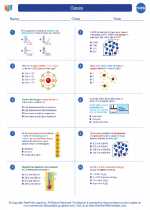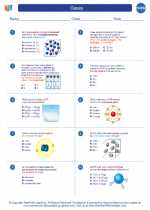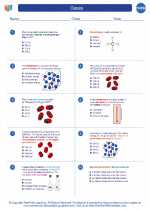Agriculture
Agriculture is the practice of cultivating plants and raising animals for food, fiber, and other products used to sustain and enhance human life. It involves a range of activities including crop production, animal husbandry, and soil management.
Importance of Agriculture
- Provides food and nutrition for human consumption
- Serves as a source of raw materials for various industries
- Contributes to economic development and employment
- Plays a crucial role in environmental conservation and sustainability
Key Concepts in Agriculture
- Crop Production: Involves the cultivation of plants for food, feed, fiber, and fuel. Key aspects include plant breeding, pest management, and crop rotation.
- Animal Husbandry: Focuses on the care and breeding of domesticated animals for meat, milk, eggs, and other products. It includes animal nutrition, health management, and breeding techniques.
- Soil Management: Encompasses the practices and techniques used to maintain and improve soil fertility for sustainable agricultural production. Soil conservation, organic farming, and use of fertilizers are important components.
Challenges and Innovations in Agriculture
Modern agriculture faces various challenges such as climate change, water scarcity, and the need to meet growing food demands. Innovations including precision agriculture, genetic engineering, and sustainable farming practices are being employed to address these challenges.
Study Tips
To excel in the study of agriculture, consider the following tips:
- Understand the principles of plant biology and animal science
- Explore the impact of technology on modern agricultural practices
- Stay informed about current issues in global agriculture and food security
- Engage in hands-on experiences such as gardening or visiting farms
◂Chemistry Worksheets and Study Guides High School. Gases
The resources above cover the following skills:
Physical Science
Energy - A. Energy is involved in all physical and chemical processes. It is conserved, and can be transformed from one form to another and into work. At the atomic and nuclear levels energy is not continuous but exists in discrete amounts. Energy and mass are related through Einstein's equation E=mc 2 . B. The properties of atomic nuclei are responsible for energy-related phenomena such as radioactivity, fission and fusion. C. Changes in entropy and energy that accompany chemical reactions influence reaction paths. Chemical reactions result in the release or absorption of energy. D. The theory of electromagnetism explains that electricity and magnetism are closely related. Electric charges are the source of electric fields. Moving charges generate magnetic fields. E. Waves are the propagation of a disturbance. They transport energy and momentum but do not transport matter.
Relate temperature to the average molecular kinetic energy.



